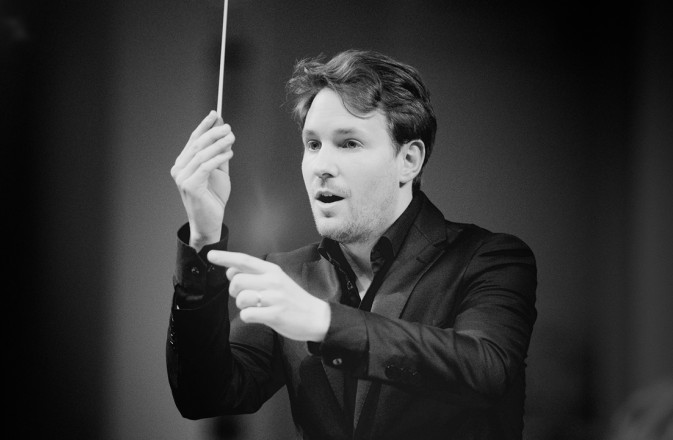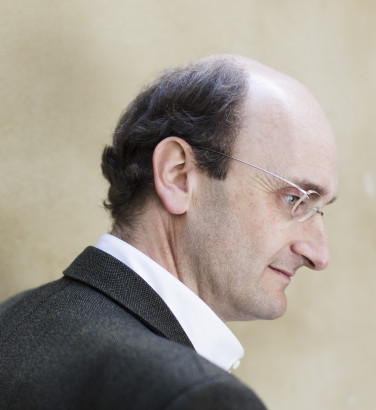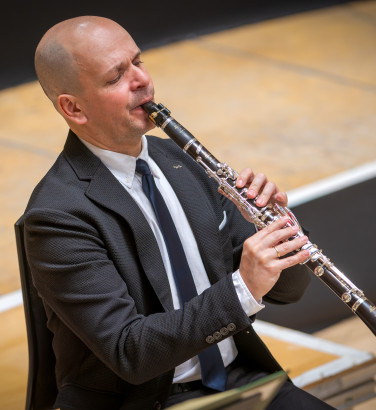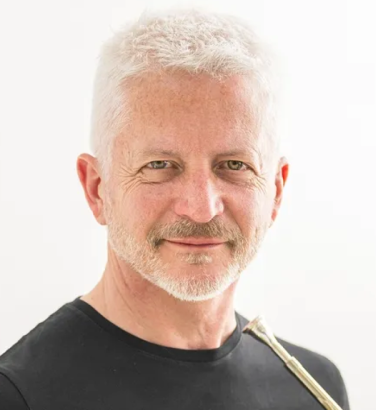
Alban Gerhardt: "the composer is the creator, I am just his servant"
31 Oct 2022
News Story
Alban Gerhardt has performed in Scotland before - including at the 2019 concert to celebrate the 40th anniversary of the opening of the Queen's Hall in Edinburgh as a performance venue, with his regular recital partner Steven Osborne - but never with the SCO. His debut with the Orchestra is made all the more special by his bringing us the Scottish premiere of Julian Anderson's cello concerto Litanies, written for and dedicated to him.
Alban graciously agreed to an interview, which we hope will serve as a tempting foretaste of the concert.
Where did you first hear the music of Julian Anderson?
It was actually my friend and Scotland’s own Steven Osborne who strongly recommended Julian Anderson’s music to me, but before I was able to listen to any of his music I actually met Julian after one of Steven’s Proms in London. At dinner I asked Julian, as one does, whether he had any pieces written for cello and orchestra, and when he denied that I said (more out of politeness) that he should write a cello concerto. Somehow his and my manager immediately got involved, put their heads together and found a couple of orchestras willing to commission a concerto by Julian who started writing pretty soon after, and I think a year after we met he had already written the first movement. Far too late in the process did I actually listen to some of his music (as I don’t enjoy listening to recorded music it took me a while) and luckily I liked very much what I heard.
Can you tell us about the process of working with Julian?
Normally I am far too lazy and far too modest (the composer is the creator, I am just his servant…) to get involved in the process the composer is taking when writing a piece. All I told the three composers I had asked a concerto from (Brett Dean, Unsuk Chin and Julian Anderson) to keep in mind that the cello ain’t no trumpet, to avoid balance problems! And while Unsuk and Brett knew and had heard me many times in concert, I did send various recordings of mine to Julian for him to know my playing a bit better.

When he showed me the first draft of the first movement though I kind of panicked as his concept was to do a full movement of just pizzicatoing - he somehow had liked my pizzicato in some piece and decided to do something as unusual as that. I absolutely did not like that idea (being afraid of my poor fingers having to work so hard for more or less nothing, as pizzicato does not really have a great projection in a big hall, so if anybody else is playing, you either have to pizz as loud as possible or you’d be drowned out completely). Also I told him if he wanted his concerto to have a life beyond the co-commissioners, then maybe treat the cello a bit more as a solo instrument and not as a pizzicatoing 'primus inter pares', almost disappearing in some kind of chamber music setting. It took me a while and some courage to express this to him, but I am extremely happy that he took it to heart and came up with a wonderful concerto which also includes some pizzicato.
You gave the world premiere of Litanies shortly before the pandemic. How does it feel returning to it now?
The first few repeat performances of Litanies had been cancelled due to Covid which was a pity as it would have stuck into my brain easier (as I try to play everything I perform by heart), but I have played it in Sweden 9 months after the world premiere, in Lausanne 5 months later and in Birmingham another 3 months later as well, and the re-learning and re-memorizing became each time a bit easier, so I expect the same to happen when I start practicing it again, even though this time there will have been a 15-month gap.
The times before it just felt like with the two other world-premiere-repeats - at the beginning of my practicing it I don’t remember anything, and after a couple of days it all comes back and feels clearer and easier than the last time around, and in my experience, the pieces always grow on me, and I think they do the same on the audience. This is the reason I find it so important that any contemporary piece has the chance to be performed at least 10 times over a longer period of time, because only then can you see the full potential of a piece. When I performed Litanies in Birmingham for the fourth time, 17 months after its birth, I already liked it much better than the first time because I understood and played it much better.
Establishing a good piece into the standard repertoire is one of my greatest desires.
You come across as an avid traveller. Is there anywhere you are particularly longing to return?
I have travelled to Rome only once in my life, 23 years ago, and I was absolutely smitten by the beauty of this city - yet I have never returned as I have never been invited to perform there, and I hardly ever travel as a tourist, so yes, I would love to return to Rome - and one day I’d love to go on a long holiday to go hiking in the Peruvian Andes.
Finally, are there any parts of the cello repertoire you wish were better known?
The blessing and the curse of the cello concerto repertoire is the Dvořák concerto as it’s maybe the greatest instrumental concerto of all time (even some non-cellists claim that), but unfortunately it makes the rest of the hundreds of cello concertos out there look less spectacular. My wish is that people realise how many different cello concertos are out there besides the Dvořák and the other dozen standard repertoire ones. Walton, Barber, Britten, Martinů, Bridge, Enescu and Hindemith just to name a few of the 20th century (which I have performed and each time the audience was very appreciative as these are gorgeous pieces not too difficult to understand), but also there are quite a few Romantic concertos worth playing. Not as many though, maybe Rubinstein and Volkmann plus some of the virtuosic ones - and I am sure there are a lot more contemporary ones which just haven’t been given a second and third chance, and I am a bit cross with performers, promoters and audiences alike that they are all so keen on a world premiere but often not so interested in playing performances Nos. 2-20 as it’s less "sexy". For me a world premiere has no special interest, but establishing a good piece into the standard repertoire is one of my greatest desires.
Litanies was co-commissioned by Radio France, Hong Kong Sinfonietta, the City of Birmingham Symphony Orchestra, the Norwegian Chamber Orchestra, the Swedish Chamber Orchestra and the Orchestre de Chambre de Lausanne.
Related Stories
![]()
Andrew Manze: "I've always loved Viennese waltzes and polkas"
1 December 2025
Our Principal Guest Conductor is really looking forward to conducting our Viennese New Year concerts!![]()
Maximiliano Martín: "A friend said 'Gnarly Buttons would suit you very well'"
10 November 2025
Ahead of his performance of John Adams' Gnarly Buttons, we spoke to our Principal Clarinet about performing as soloist with the Orchestra.![]()
Quickfire Questions with Kenneth Henderson
7 November 2025
Get to know our new Principal Horn!



